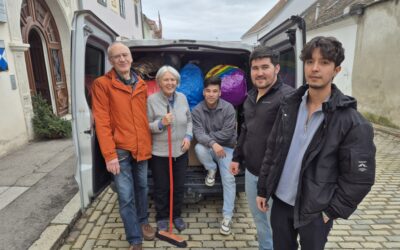These words are part of a passage through which the author wants to demonstrate the infinite superiority of Jesus’ sacrifice compared to the sacrifices made according to the old Law. Those sacrifices offered to God were animals or things external to the human being, but what Jesus did was different. His intense love led him during his life on earth to offer the Father his very own will, all of himself.
“Behold, I come to do your will.”
These words provide the key to understanding the life of Jesus. They help us to grasp its deepest aspect and the golden thread that runs through all the events of his life on earth: from his childhood, the years of his private life, the temptations, his choices, his public life, all the way to his death on the cross. In every instance, in every situation, Jesus sought only one thing: to fulfill the will of the Father. And he accomplished it in a most radical way; that is, he never did anything outside of what was expressed in that will, and he refused even the most striking suggestions that were not in full agreement with it.
“Behold, I come to do your will.”
These words help us understand the great lesson that the whole of Jesus’ life offered. That is, that the most important thing to do is to fulfill not our own will, but the will of the Father. It means being able to say “no” to ourselves in order to say “yes” to him. True love of God does not consist in beautiful words, ideas and feelings, but in effective obedience to his commandments. The sacrifice of praise that he expects from us is to lovingly offer him the most intimate thing we possess: our will.
“Behold, I come to do your will.”
How can we put this passage into practice? This is also a sentence that emphasizes the fact that the Gospel goes against the current in so far as it goes against a very basic human tendency: to fulfill our own will, to follow our own instincts and feelings. This sentence is also one of the most annoying for modern men and women. We live in an age that exalts the ego and celebrates individualism. Freedom is seen as an aim in itself, and self-satisfaction as the fulfillment of the person. Whatever gives pleasure is considered the guideline for making one’s decisions and the secret to happiness. But we all know well the disastrous consequences that the pursuit of this culture leads to. A culture based on satisfying one’s own will stands in complete opposition to that of Jesus, which is totally oriented towards fulfilling the will of the Father and produces the wonderful effects that he promises. Let us try to live this passage by choosing the will of the Father, making it the guide and motivating force of our whole life, as Jesus did. We will thus set out on a divine adventure, for which we will be eternally grateful to God. Through it we will reach sanctity and enkindle the love of God in many hearts. Chiara Lubich




0 Comments